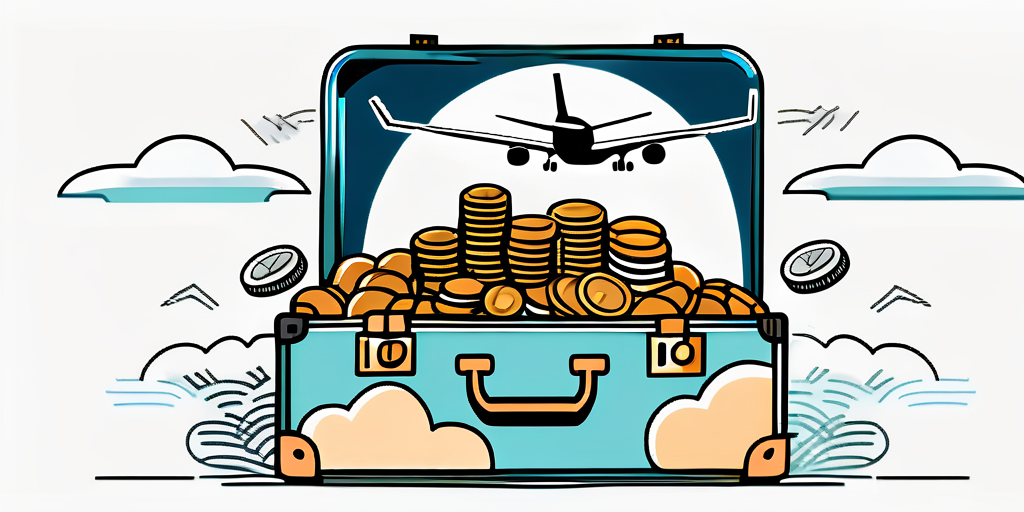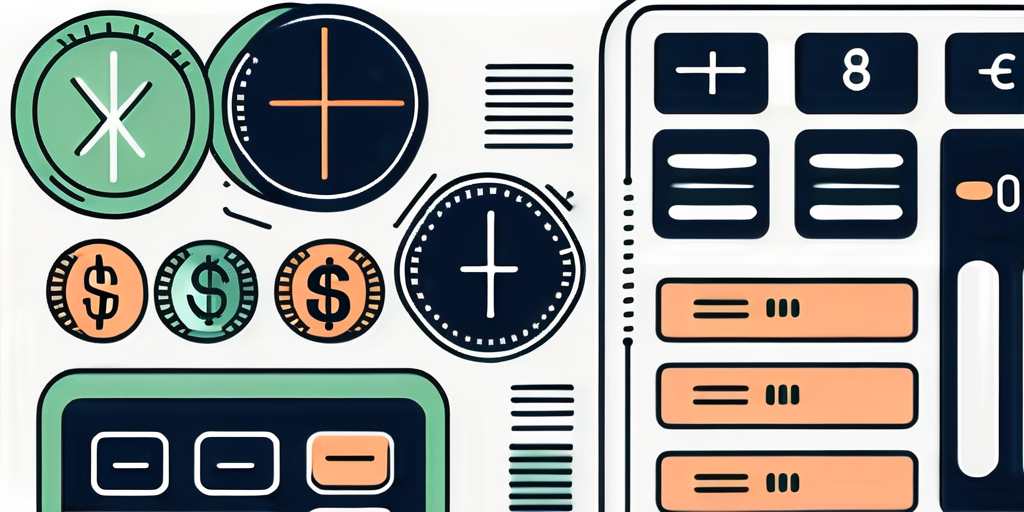The Ultimate Guide to Flight Disruption Compensation
Learn about your rights regarding flight disruption compensation. Discover how to claim compensation for delays, cancellations, and more.
In today's fast-paced world, air travel has become an essential part of our lives. However, sometimes our travel plans can be disrupted due to various reasons such as flight delays, cancellations, or even overbooking. When faced with such situations, it is important to know your rights and the options available to you. This ultimate guide aims to provide you with comprehensive information on flight disruption compensation, including understanding the concept, the claim process, dealing with airlines, and the factors affecting compensation amounts.
Understanding Flight Disruption Compensation
What is Flight Disruption Compensation?
Flight disruption compensation refers to the monetary compensation or benefits that passengers are entitled to in case their flights are delayed, cancelled, or overbooked. These compensations are typically based on regulations and laws that protect passengers from being left stranded or financially disadvantaged due to airline-related issues.

Legal Rights and Flight Disruptions
As a passenger, it is important to be aware of your legal rights when it comes to flight disruptions. Different countries and regions have their own set of laws and regulations governing compensation for flight disruptions. Familiarize yourself with these rights to understand what you are entitled to in case of a disruption.
Types of Flight Disruptions Covered
Flight disruptions can come in various forms, including delays, cancellations, denied boarding due to overbooking, and missed connections caused by the airline's fault. It is crucial to know what types of disruptions are covered under compensation regulations to determine whether you are eligible for compensation.
Moreover, it's essential to note that flight disruption compensation may also extend to situations such as flight diversions, where a plane is rerouted to a different airport due to unforeseen circumstances like weather conditions or technical issues. In such cases, passengers may be entitled to compensation depending on the specific circumstances and the regulations in place.
Importance of Documentation
When seeking flight disruption compensation, documentation plays a crucial role in supporting your claim. Make sure to keep records of your flight details, boarding passes, receipts for any additional expenses incurred due to the disruption, and any communication with the airline regarding the issue. This documentation can strengthen your case and help expedite the compensation process.
The Process of Claiming Compensation
When to Claim Compensation
It is important to know when it is appropriate to claim compensation for a flight disruption. Generally, you can claim compensation if your flight was delayed by a certain amount of time, canceled without prior notice, or if you were denied boarding due to overbooking. Understanding the specific criteria for each type of disruption will help you determine if you are eligible to claim compensation.
Flight delays are a common occurrence in air travel, but not all delays qualify for compensation. The European Union Regulation 261/2004, for example, stipulates that passengers may be entitled to compensation if their flight arrives at its final destination more than three hours late. However, certain circumstances such as extraordinary circumstances (e.g., severe weather, air traffic control restrictions) may exempt airlines from paying compensation.
How to File a Compensation Claim
When filing a compensation claim, it is essential to follow the correct procedures. The process may vary depending on the airline and the applicable regulations. In general, you will need to provide detailed information about your disrupted flight, such as the date, flight number, and reason for the disruption. It is advisable to keep all relevant documents, such as boarding passes and receipts, as proof of the disruption.
Some airlines have online portals or dedicated customer service channels for submitting compensation claims. It is crucial to submit your claim as soon as possible after the disruption occurs, as there may be time limits for making a claim. Be prepared to provide supporting documentation and be patient during the review process, as it may take some time for the airline to investigate and respond to your claim.
Necessary Documentation for Claims
When filing a compensation claim, you will typically need to provide various documents as evidence of the disruption and your eligibility for compensation. These documents may include your boarding pass, flight tickets, any communication with the airline, and receipts for any additional expenses incurred due to the disruption. Keeping organized records will help streamline the claim process.
In addition to the basic documentation, you may also be required to provide a copy of your identification, such as a passport or driver's license, to verify your identity. This is to prevent fraudulent claims and ensure that the compensation is being rightfully claimed by the affected passenger. Providing accurate and complete documentation will increase the likelihood of a successful compensation claim.
Dealing with Airlines for Compensation
Communicating with Airlines
When facing a flight disruption, effective communication with the airline is essential. Reach out to the airline promptly to report the disruption and inquire about the available compensation options. Keep a record of all communication, including the names of the customer service representatives you spoke to and any reference numbers provided.
 It is crucial to approach the communication with airlines in a calm and assertive manner. Remember that the customer service representatives are there to assist you, and maintaining a polite demeanor can go a long way in resolving the issue efficiently. Clearly explain the nature of the disruption you experienced, providing details such as the flight number, date, and the specific issues you encountered. By being thorough in your communication, you can help the airline understand the situation better and expedite the resolution process.
It is crucial to approach the communication with airlines in a calm and assertive manner. Remember that the customer service representatives are there to assist you, and maintaining a polite demeanor can go a long way in resolving the issue efficiently. Clearly explain the nature of the disruption you experienced, providing details such as the flight number, date, and the specific issues you encountered. By being thorough in your communication, you can help the airline understand the situation better and expedite the resolution process.
Understanding Airline Policies
Each airline has its own policies and procedures regarding compensation for flight disruptions. Familiarize yourself with the specific policies of the airline you are traveling with to understand the compensation options available to you. This information will empower you to negotiate effectively and ensure you receive the compensation you are entitled to.
Furthermore, it is beneficial to research common compensation practices in the airline industry to have a broader understanding of what you can reasonably expect. Some airlines may offer vouchers for future travel, while others may provide monetary compensation or accommodation arrangements in case of significant delays or cancellations. By arming yourself with knowledge about industry standards, you can approach the negotiation process with confidence and a clear understanding of your rights.
Resolving Disputes with Airlines
In some cases, disputes may arise when claiming compensation from an airline. If you encounter any challenges or disputes, it is important to understand the available options for resolution. You may need to escalate your claim to higher-level airline representatives, involve consumer protection authorities, or seek legal advice depending on the severity of the dispute.
When facing a prolonged dispute with an airline, it can be helpful to seek assistance from relevant consumer rights organizations or regulatory bodies. These entities can provide guidance on your rights as a passenger and offer support in navigating the resolution process. Remember to document all interactions and correspondence with the airline to strengthen your case and ensure a fair outcome.
Compensation Amounts and Calculations
Factors Affecting Compensation Amount
The amount of compensation you are entitled to receive for a flight disruption can vary depending on several factors. These factors may include the distance of your flight, the length of the delay, and the specific regulations governing compensation in your departure and arrival countries. Understanding the factors that affect compensation amounts will help you have realistic expectations.
 Let's delve deeper into these factors to gain a better understanding. The distance of your flight plays a significant role in determining the compensation amount. Generally, the longer the distance, the higher the potential compensation. This is because longer flights often involve more inconvenience and disruption for passengers.
Let's delve deeper into these factors to gain a better understanding. The distance of your flight plays a significant role in determining the compensation amount. Generally, the longer the distance, the higher the potential compensation. This is because longer flights often involve more inconvenience and disruption for passengers.
Moreover, the length of the delay is another crucial factor. The compensation amount may increase as the delay becomes longer. For instance, if your flight is delayed for a few hours, the compensation might be lower compared to a delay of several hours or more. This is because longer delays can significantly impact your travel plans and cause greater inconvenience.
Additionally, it's essential to consider the specific regulations governing compensation in your departure and arrival countries. Each country may have its own set of rules and guidelines regarding flight disruption compensation. Familiarizing yourself with these regulations will provide you with a clearer understanding of what you can expect.
How Compensation is Calculated
The calculation of compensation for flight disruptions can be a complex process. Many jurisdictions have standard formulas or guidelines to determine the amount of compensation passengers are entitled to. These formulas often consider factors such as the distance of the flight and the length of the delay.
For example, some countries may have a fixed compensation amount based on the distance of the flight. Others may have a tiered system where the compensation increases with longer delays. Understanding these calculations can help you estimate the compensation you might receive in case of a flight disruption.
It's worth noting that compensation calculations may also take into account other factors, such as the reason for the disruption. If the delay or cancellation was due to extraordinary circumstances beyond the airline's control, the compensation amount may be adjusted accordingly. These circumstances can include severe weather conditions, air traffic control restrictions, or security threats.
Receiving and Using Your Compensation
Once your compensation claim has been approved, you will receive the compensation in the form specified by the airline or the regulations governing the compensation. This may include cash, vouchers, travel credits, or other forms of reimbursement.
It is important to understand the terms and conditions associated with your compensation to make the most out of it. For example, if you receive travel credits, you may need to use them within a certain time frame or for specific destinations. Being aware of these details will ensure that you can fully utilize the compensation you receive.
Remember, the purpose of compensation is to provide you with some form of redress for the inconvenience and disruption caused by a flight disruption. It is crucial to familiarize yourself with the compensation process and your rights as a passenger to ensure you receive what you are entitled to.
In conclusion, flight disruptions can be frustrating and inconvenient, but it is crucial to know your rights as a passenger and the options available to you for compensation. By understanding the concept of flight disruption compensation, the claim process, how to deal with airlines, and the factors affecting compensation amounts, you can navigate through such situations more effectively. Remember to stay informed, keep records, and be proactive when faced with flight disruptions to ensure you receive the compensation you are entitled to.
Ready to Claim Your Flight Compensation?
Flight disruptions are more than just a nuisance—they're a breach of your passenger rights. ClaimCompass is here to ensure you receive up to 600€ in compensation for flight delays, cancellations, and overbookings. Our expertise in EU Regulation 261/2004 and our commitment to air passenger rights in Europe make us your ideal advocate. Don't worry about the hassle of dealing with airlines; we'll submit your claim, communicate on your behalf, and even take legal action if necessary. Use our free compensation calculator to check your eligibility and potential compensation amount. With ClaimCompass, you only pay a fee if we successfully secure your compensation. Ready to get what you're owed? Submit a claim today and let us take care of the rest.
